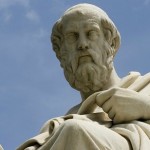We run our website the way we wished the whole internet worked: we provide high quality original content with no ads. We are funded solely by your direct support. Please consider supporting this project.
What is the significance of Jeremiah 3:19–20?
“I thought how I would set you among my children…And I thought you would call me, My Father, and would not turn from following me. Instead, as a faithless wife…you have been faithless to me…”
If the future is eternally and exhaustively settled, and if God therefore knows it as such, he could not have really planned to bless Israel and have truly expected them to respond to his kindness with fidelity, only to be disappointed when they persisted in their rebellion. Only if the future is partly composed of possibilities, and not exclusively of certainties, can verses such as this have any clear meaning (see Isa. 5:1–5).
Does this mean that God was mistaken? If the future was settled one way and God thought it would go a different way, then we’d have to say God was mistaken. But if the future is by divine choice partly a realm of possibilities left open for free agents to decide, then we need not, and should not, conclude this. If this is how the future really is, there is no difficulty in understanding how an omniscient God could suspect that one thing would occur but then discover that a different thing occurred.
For example, if it is the case (in reality, not just in our limited speculations) that the chances of the Chicago Bulls winning the Championship are 9 to 1 in their favor, then anyone (viz. God) who had a perfectly accurate assessment of reality would expect the Bulls to win. Still, the unlikely sometimes happens: they could lose. But even if they did, this wouldn’t change the fact that before they lost it was most likely that they were going to win.
God was thus not mistaken in expecting that the Israelites would follow him even though it turned out they didn’t. For before they acted in this surprising manner, it was indeed more probable than not that they would follow him. This doesn’t mean that God was caught off guard, for the omniscient Lord knows all possibilities. But it does mean that what the omniscient God thought was most likely to occur did not occur.
The open view can thus make sense out of this verse without detracting from the omniscience of God. If the future is exhaustively settled in God’s mind, however, then no sense can be made out of this verse, for there are no real possibilities or probabilities to God. There are only certainties.
Category: Q&A
Tags: Open Theism, Q&A
Topics: Open Theism
Verse: Jeremiah 3
Related Reading

Is Your Christianity Shaped by Plato or the Bible?
The Timaeus is a work that Plato wrote that addresses the questions: “What is that which always is and has no becoming, and what is that which becomes but never is?” (Tim. 28a)? These questions contain one of the most influential – and, in my opinion, one of the most disastrous – philosophical ideas of…

What is the significance of Amos 7:1–6?
The Lord revealed a judgment he was planning to bring on Israel to Amos in a vision. Amos prayed “O Lord God, forgive, I beg you!” (vs. 2). Scripture declares that, “The Lord relented concerning this; ‘It shall not be,’ said the Lord” (vs. 3). The Lord then showed Amos another fierce judgment he was…

What is the significance of Ezekiel 22:29–31?
The Lord says he “sought for” someone to stand in the breech for Israel “but I found none.” Hence Israel experienced the wrath of God. If everything that shall ever come to pass is eternally fixed in the divine mind, God would have foreknown that no one would respond to his call for a Moses-like…

Can Christians serve in the military?
Question: Jesus ministered to military people (e.g. a centurion) and didn’t tell them to leave their military post. So do you think Christians can serve in the military? I believe it’s a Christians duty is to serve their country, aid the wounded, defend the oppressed, protect our families, stand for truth and justice, and kill…

Free Will: What does Quantum Theory suggest?
Bet you didn’t think we’d be going here. Greg discusses how quantum theory supports the idea of free will.

Seven Lies
hobvias sudoneighm via Compfight Stephen Mattson has contributed for Relevant Magazine, Sojourners (Sojo.net) Redletterchristians.org, and studied Youth Ministry at the Moody Bible Institute. He is now on staff at the University of Northwestern St. Paul, Minn. Follow him on Twitter @mikta. Stephen recently published an article in Sojourners titled Seven Lies About Christianity — Which Christians Believe that we really…
